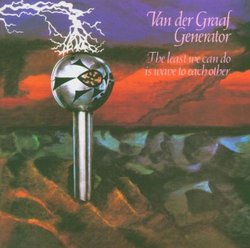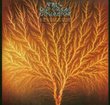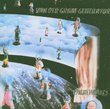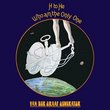| All Artists: Van Der Graaf Generator Title: Least We Can Do Is Wave to Each Other Members Wishing: 2 Total Copies: 0 Label: Blue Plate Caroline Original Release Date: 1/1/2005 Re-Release Date: 6/14/2005 Album Type: Extra tracks, Import, Original recording remastered Genres: Special Interest, Pop, Rock Styles: Experimental Music, Progressive, Progressive Rock Number of Discs: 1 SwapaCD Credits: 1 UPC: 724347488924 |
Search - Van Der Graaf Generator :: Least We Can Do Is Wave to Each Other
 | Van Der Graaf Generator Least We Can Do Is Wave to Each Other Genres: Special Interest, Pop, Rock
|
Larger Image |
CD DetailsSimilar CDs
|
CD ReviewsMost of the elements of the classic sound are in place Jeffrey J.Park | Massachusetts, USA | 05/27/2006 (5 out of 5 stars) "This 1970 release saw the band moving closer to the "classic" Van der Graaf Generator sound that was established on the follow-up album H to He, He who am the only One (1970) and brought to perfection on the incredible Pawn Hearts (1971). Although in some ways the product of a band still finding their way, this album is very enjoyable. The heavy, at times cacophonous sound on the album is dominated largely by Peter Hammill's remarkable vocals, which range from a "heavy metal" rasp to a high-pitched "choir boy" vocal style, along with Hugh Banton's twisted/heavily distorted/churchy Hammond organ work, superb drumming by Guy Evans, and David Jackson's saxophone playing, which gets fairly free-form at times. This album did feature a full time bassist position, which was filled by Nic Potter. I think that it is worth noting that although a great deal of this album is bleak and harsh, the piece Refugees is quite possibly the most beautifully sad composition VDGG ever wrote. Although I do enjoy the abrasive and gothic qualities of the music, Refugees is just a very nice song and one I return to again and again. There are also lighter moments on the short (4'08") track Out of my Book, which features some nice flute playing by David. The EMI remastered album is excellent with dramatically improved sound quality that brings out the subtle nuances of each piece. Perhaps the greatest sound improvement is with Guy's drums - I can finally hear his playing and he is justifiably regarded as one of prog rock's greatest drummers. The artwork is also excellent and the detailed liner notes feature a number of publicity shots. The bonus tracks include Boat of a Million Years, and an edit of Refugees. Both tracks were released as a single in April 1970. This album is highly recommended along with H to He, Pawn Hearts, and Still Life (1976)." Darkness at 69 Humberto Mejia | Perth, Australia | 03/11/2008 (4 out of 5 stars) "Luis Mejia (son) - "Don't listen when you're hustling, depressed, or with preoccupations, and if you're always in these moods, don't even bother" that's the message Hammill left us in the liner notes of VDGG first truly concrete album. But Hammill's warnings result ironic (looking further), as VDGG music always provided the bitter sides of all this feelings of angst and more, in the good way of course, but they result difficult to resist. As of this album, The Least We Can Do Is Wave To Each Other is a quality piece in their catalogue, resulting in an obscure, crazed but truly compelling progressive rock, with an special touch in prog which none other band provided with their characteristics; the bombastic touches of alternative instrumentation, the magestic tunes mixed with the unraveling awkward melodies, if they sometimes are present, and so on. The album sounds as one of the roots of prog, truly cerebral and quite interesting by the time, but the era's influence beats every artist, as the album sounds as totally sixties revolution expression, but instead of being psychedelic, or having any kind of pop tendencies, it is insane and experimental. This is precisely why the 4 stars; the album sounds still too much sixties, it isn't until H To He Who Am The Only One when they truly explode their talent in best terms.
But still, two of the songs, which also got to be some of their most requested, get to be really impressive at any time or era; these are the opening "Darkness (11/11)", which hits to have a quality and expression that burst you in dramatic feelings, prophetic-like tell-tales, and a quiet sense of feeling in the bordeline of your mind, and their most ballad-like ever "Refugees", Which prooves that the band has a caring heart, and Peter Hammill sings it with the heart, as this is a soft-like progressive song, but the piano touches, the forgiving horns, and still a great power gives the song the most unique touch. Far from these two are their other quiete common pieces; "White Hammer" surely got some critic attention, as I consider it their most freaky one, while "Whatever Would Robert Had Said?" and "After The Flood" both have a recognizable chorus. Overall, the album introduces the band, but this will be more appreciated for those searching for prog roots, and still will keep a question mark on their minds :)." |

 Track Listings (8) - Disc #1
Track Listings (8) - Disc #1


